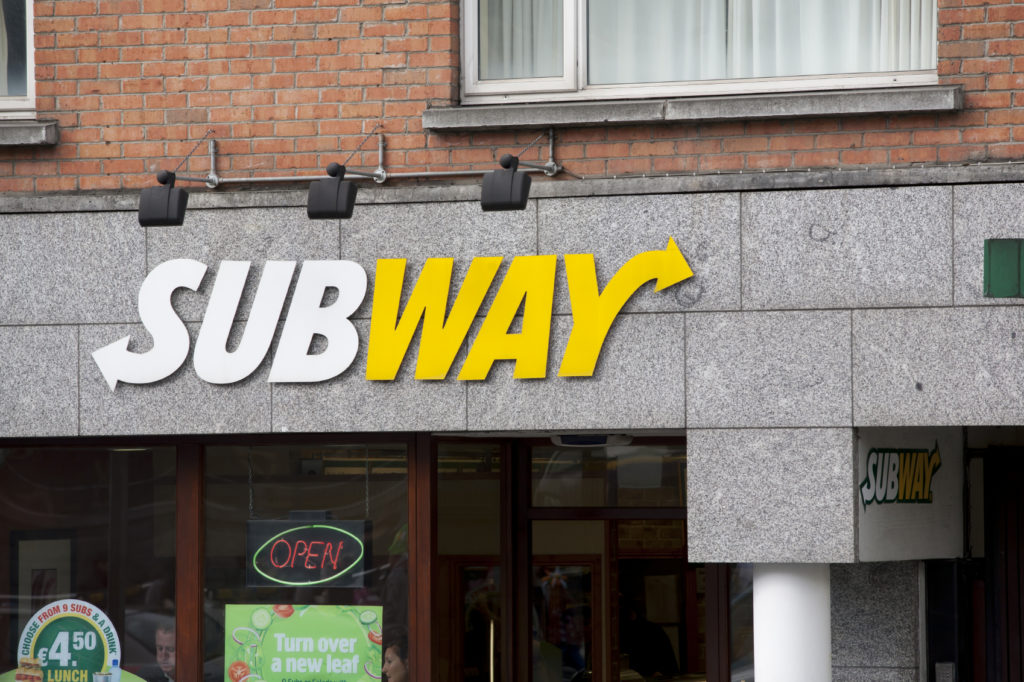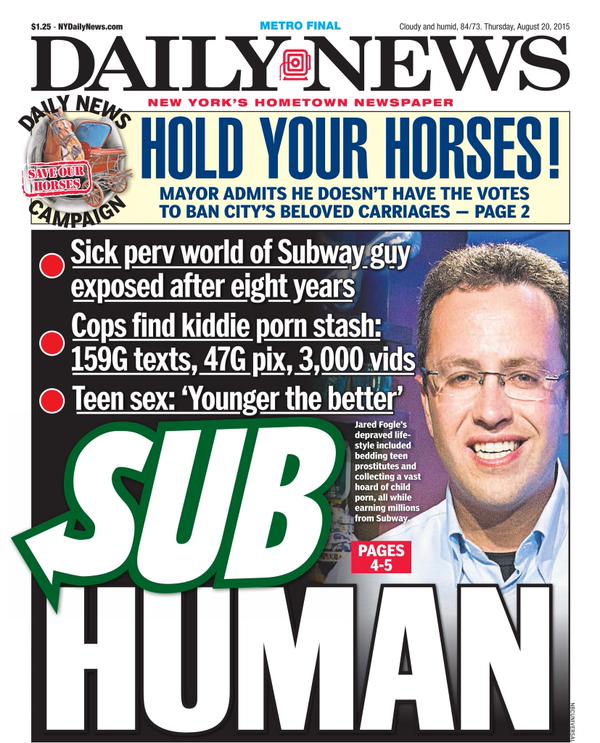Should Subway Ever Have Used Jared As Its Star Spokesman?
The story of how Jared Fogle came to be the face of Subway is a fascinating one. According to Chip and Dan Heath’s superb Made to Stick, Jared’s path to becoming a sandwich pitchman began almost 16 years ago when a former dormmate of Jared’s wrote an article for the Indiana Daily Student.
“A reporter at Men’s Health magazine, who was writing an article called ‘Crazy Diets That Work,’ happened to see the Indiana Daily article about Jared, and he included a blurb about a ‘subway sandwich diet.’”
As the Heath brothers tell it, a Subway franchisee saw that blurb and “tracked down the creative director at Subway’s Chicago ad agency.” Subway’s marketing director turned down the Jared pitch as an advertising campaign—but the ad agency persisted and took a circuitous path to getting Jared on the air. His first ad appeared on the first day of the new millennium—January 1, 2000.
Since then, Jared has starred in more than 300 commercials for the company, becoming (by far) its most familiar face.

But in light of his admission to having sex with minors and taking part in child pornography, many communications and marketing professionals are questioning the wisdom of putting a multi-billion dollar brand identity into the hands of one person. After all, there’s a reason why McDonald’s and Burger King use fictional characters instead of real people as their brand mascots.
I also questioned the wisdom of the Jared campaign upon hearing about his admission. But as I thought more about it, two things kept occurring to me—and changed my view.

1. Few People Will Blame Subway
Unless evidence emerges that Subway in some way knew about Jared’s interest in child porn but failed to act, I find it hard to believe that its customers are going to blame the company for his illegal acts. It seems rather obvious that Subway’s ads were intended to highlight its low-calorie eating options, not condone child pornography.
The victims of greatest concern are Jared’s underage targets, of course, but Subway may also be seen as a victim in this incident, as it appears they were blindsided by the horrific acts of its brand face.

2. Subway Made a Windfall On The Jared Campaign
A 2013 USA Today article shows just how profitable Jared was to the company:
“Subway’s growth has exploded during Fogle’s 15 years with the privately held company that does not publicly disclose or discuss its income or revenue. Subway more than tripled its U.S. sales to $11.5 billion in 2011, from about $3.1 billion in 1998, the year before Fogle started with them, estimates Nation’s Restaurant News. Subway now has more than 38,000 stores in 100 countries, and has more locations in the U.S. and globally than McDonald’s.
Fogle has become a mini-empire, starring in more than 300 Subway TV commercials…
‘Subway generated the perception that it’s a healthy place to eat through Jared, and it stuck,’ says restaurant researcher Malcolm Knapp. ‘That’s a very powerful tool. You don’t hear people saying that they can eat healthy at McDonald’s.’”
Considering those two points, the answer to the question of whether Subway was right to have taken the risk on a previously unknown spokesperson seems clear: yes.
After all, the Fogle embarrassment is unlikely to take billions off of the brand’s value. Nor will it erase the indelible (if questionable) perception Subway has created of the healthfulness of its food. Therefore, Jared was worth the risk—the benefits vastly outweighed the downsides for Subway in this case—even if its relationship with Jared didn’t end the way they hoped.
Don’t miss a thing! Click here to instantly join our mailing list and receive the best of the blog twice each month.



Well said, Brad, and I agree with you. The fact of the matter is, any spokesperson is a potential risk to an organization, for this exact reason. But although this should inspire companies to do their due diligence in the vetting process, it shouldn’t keep them from moving forward with their communications efforts due to a fear of a potential risk. Communication is far too important.
However, although Subway is technically a victim in this situation (unless revealed otherwise, which is doubtful), it is still unfortunate that their name is associated so closely with Fogle’s – but such is the risk. Their response, however, to the incident was short, to the point and very strong. They’ll no doubt survive through this with flying colors.
I completely agree, Brad, and was thinking this very thing recently. This past weekend I was on a two-day road trip and passed a lot of Subways. My family often stops at Subway because of the healthy fast food options and this scandal with Jared has no way impacted my opinion of their brand. A remaining question I had is if the timing makes a difference. As you pointed out, the use of Jared as a spokesperson started 15 years ago and the Jared campaign has definitely waned in the past few years for Subway. Do you think this scandal’s impact on Subway would have been perceived differently if it had happened at the height of the Jared campaign?
I also completely agree.
Lest we forget, this is not the first time brands have been impacted by the behavior of their spokesperson, especially those in the sports arena. What about Magic Johnson, Lance Armstrong and Tiger Woods. I think that as long as a brand does its vetting on the front end, and pulls sponsorships at the first sign of trouble, the public recognizes the difference between what the brand stands for and the poor choices made by the spokesperson. If anything, when a brand severs ties abruptly because of misbehavior or poor choices, I believe the public recognizes that as “justifiable consequences” and it sends a signal to young people that even their heroes are not above suffering consequences.